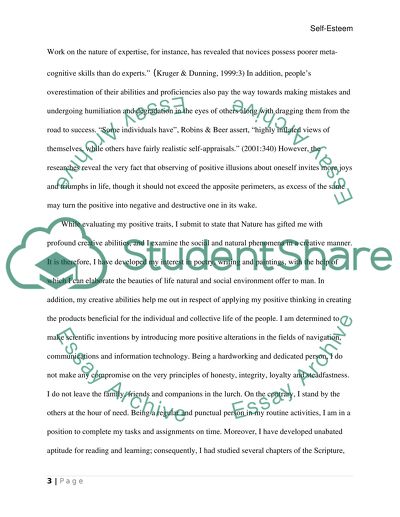Cite this document
(“Self Esteem Assignment Example | Topics and Well Written Essays - 1750 words”, n.d.)
Retrieved from https://studentshare.org/sociology/1394805-social-psychology
Retrieved from https://studentshare.org/sociology/1394805-social-psychology
(Self Esteem Assignment Example | Topics and Well Written Essays - 1750 Words)
https://studentshare.org/sociology/1394805-social-psychology.
https://studentshare.org/sociology/1394805-social-psychology.
“Self Esteem Assignment Example | Topics and Well Written Essays - 1750 Words”, n.d. https://studentshare.org/sociology/1394805-social-psychology.


